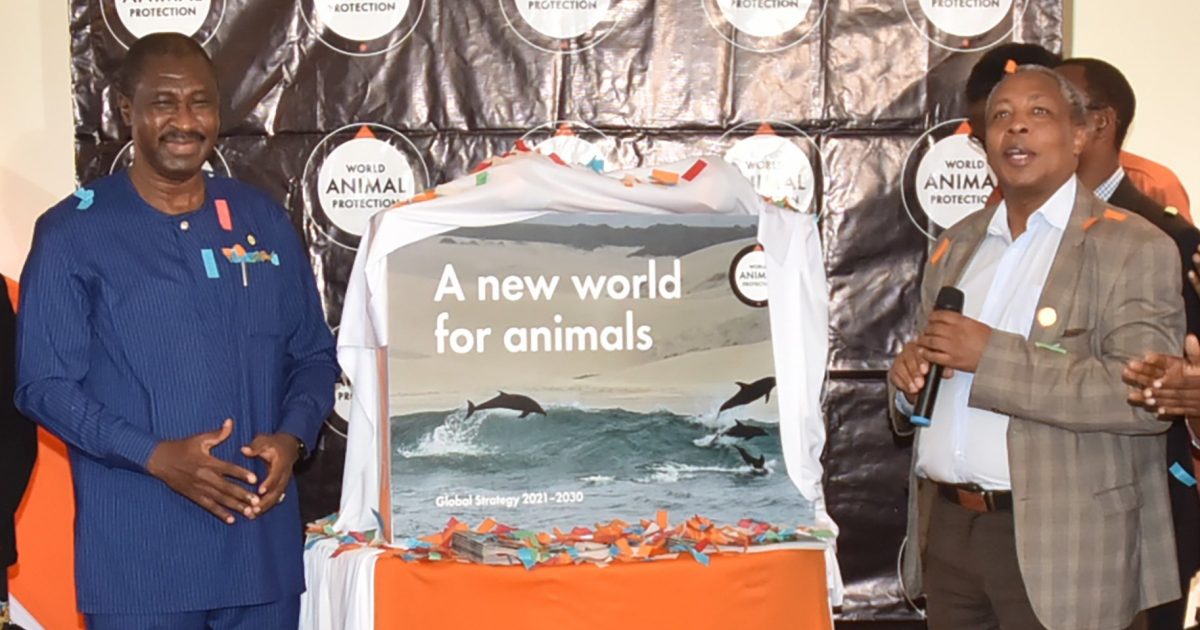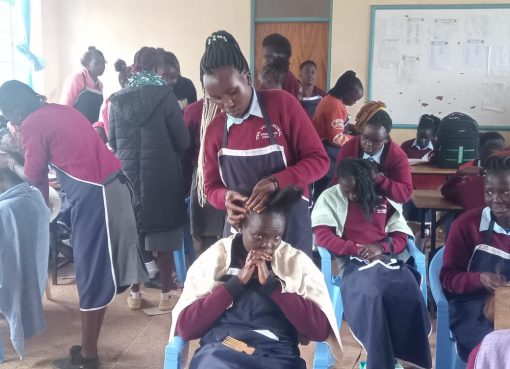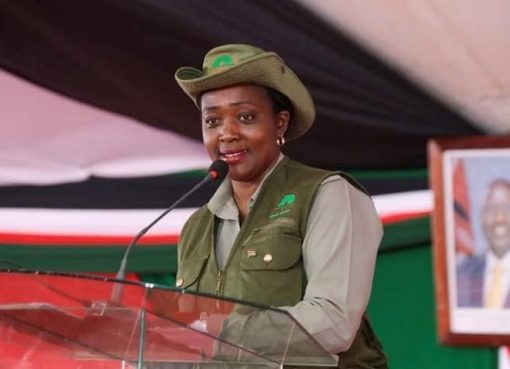Governments have been called upon to enact policies and practices to safeguard animal welfare and ensure that animals live a cruelty free life.
Tennyson Williams, World Animal Protection (WAP) Director for Africa says that failed animal policies and the demand for exotic animal pets including addition to meat are causing terrible suffering to both wild and farmed animals
Speaking at the launch of their ten- year strategic plan, Williams said at least 1.6 trillion wild animals suffer and are killed through people’s action annually, while more than 70 billion land-based farm animals raised inhumanely are consumed annually.
“With increasing pressure on land and animal habitats, humans will have to opt for alternative sources of proteins and also demand high welfare meat that ensure that animals are raised humanely and sustainably,” he noted.
The new ten year- strategy dubbed, ‘New World for Animals’ is dedicated to a ‘systems change’ – transforming the systems that cause unbearable suffering to animals.
“System change is about addressing the root causes of problems, why things happen. Our strategy commits us to raise animal protection to a priority issue of global importance and to change attitudes and mindsets so that animals are no longer seen as commodities for people to exploit,” said Tennyson.
During the launch, Dr. Jane Njuguna, Assistant Director of Veterinary Services at Ministry of Agriculture, Livestock and Fisheries said the government is in the process of passing the Animal Welfare and Protection bills 2019 to replace the old Prevention of Cruelty to Animals Act.
She noted that the bill is currently with the Ministry of Agriculture awaiting to go to parliament and then passed into law.
“This new bill according to Kelvin Osore, Executive Committee Member of the Kenya Veterinary Association contains stricter legal requirements such as any person found guilty of an offence of cruelty to animals is liable on conviction to a fine not exceeding Sh100,000 or imprisonment for a term not exceeding one year or both.
“When you look at the old Prevention of Cruelty to Animal Act, the highest penalty is at Sh5,000. For instance, when you are arrested for carrying chickens on the rooftop of the vehicle you are fined Sh 3, 000 which is too low,” he said.
Onsore noted that currently not many offences against animals are enforced since even the police are not aware of what they are therefore are not able to carry out arrests.
“Experts in the veterinary industry developed the Animal Welfare and Protection Bill to replace the existing Act, which essentially govern matters of animal welfare and have more enforceable sections as well as aligning animal welfare protection to international standards and guidelines. We hope it will be taken to Parliament by this year and be passed into law,” Osore said
Victor Yamo, Farming Manager at World Animal Protection said there are 33 veterinary laws in the country and the Bill is trying to reduce them and combine them into four big ones.
They include the Animal and Protection Bill, Veterinary Public Health Bill (this involves issues like meat inspection and public health), the Livestock Bill and the Animal Health Bill.
“All these Bills are important to us because they all contribute to the uptake of animal welfare and the Animal Welfare. Specifically, the Protection Bill seeks to create institutions that are critical and important for delivery of veterinary services which include health and animal welfare,” said Yamo.
He added that the Act that currently governs animal welfare- Cap 360 on Prevention of Cruelty to Animal Act lacks an authority that manages animal welfare and therefore the Bill will create structures for managing animal welfare from the National Government to the County Government which has been missing.
“The old Act does not recognize Counties because it was done in 1962 though it has been reviewed a number of times, it needs an overhaul change. Animal welfare is a conjoined function between National and Counties. It will seek to create bodies at the County level that will manage animal welfare at County level.
Dr. Nick Nwankpa, Acting Director for African Union Interafrican Bureau for Animal Resources (AU_IBAR), while making his keynote address said that animal welfare must be placed at the heart of sustainable solutions on a grand scale, to build a better world for all.
“Right now, we are embracing an unprecedented opportunity to advocate for animals within a joined-up response to urgent global crises,” he added
According to the WAP strategy, to make a real difference for animals, root causes must be tackled. Governments and big businesses must be held accountable for their continued investment in broken systems and persuaded to change.
At individual level, he added, people must continue putting pressure on the institutions that fuel animal cruelty to change their policies and stop it. United and individually, there is power to demand change and overturn the systems that cause so much suffering to animals.
According to the World animal Protection, more than 70 billion land based farm animals are consumed annually with most of them cruelly confined to industrial and low welfare systems.
By Wangari Ndirangu





